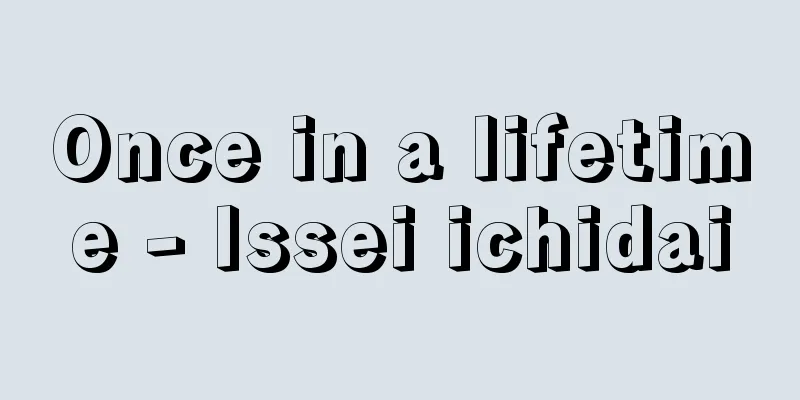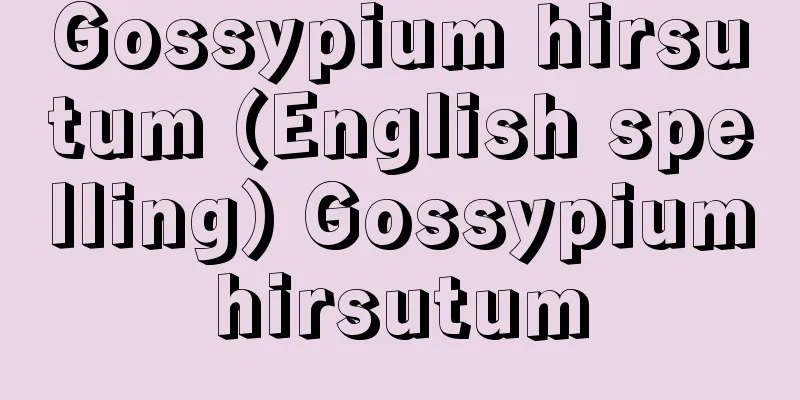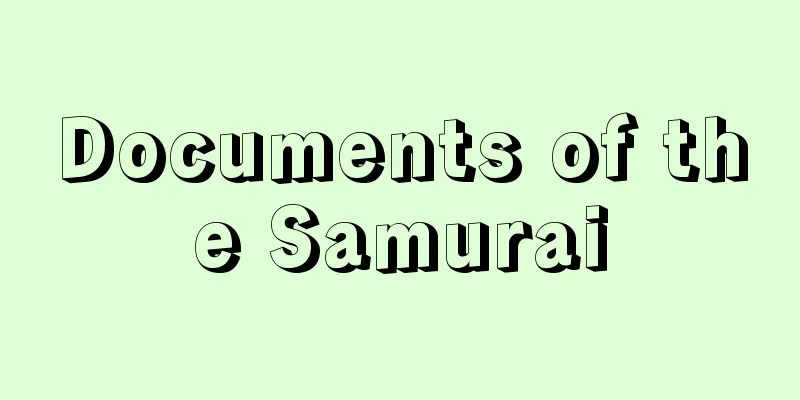Great Inspection - Okemi

|
During the Edo period, when taxes were collected by inspection (→ inspection method), the magistrate would personally visit the village and assess the yield. The magistrate's assistant would compare the yield with the assessment (shokenmi) to determine the tax rate. After 1719 (Kyoho 4), the magistrate made it a rule to actually cut the yield of any one tsubo (3.3 square meters) of land and compare it with the results of the shokenmi. Source: Encyclopaedia Britannica Concise Encyclopedia About Encyclopaedia Britannica Concise Encyclopedia Information |
|
江戸時代,年貢が検見取 (→検見法 ) の場合,代官がみずから郷村におもむき,収穫量の査定を行うこと。代官手代の査定 (小検見) と比較して租率を決めた。享保4 (1719) 年以降,実際に任意の1坪の収量につき坪刈 (つぼがり) を行なって,小検見の結果と比較照合することを励行させた。
出典 ブリタニカ国際大百科事典 小項目事典ブリタニカ国際大百科事典 小項目事典について 情報 |
<<: Common eider - Ookewatagamo
Recommend
Acyl peroxide - Acyl peroxide
...Many metal peroxoacid salts, such as peroxochr...
Raffaele Garofalo
1852‐1934 Italian criminal law scholar. Born in Na...
Uchen - Uchen
...Some consonants change their shape when combin...
Janibeg Khan (English spelling)
...The first time the ethnic name appears in hist...
Edo Inner Bay 44 Lakes Meeting - Edo Inner Bay 44 Lakes Meeting
In the Edo period, the headmen and representatives...
Aretaios
...Even its predecessor, dementia praecox, dates ...
Old Tone River
A river in eastern Saitama Prefecture. It is the u...
Bidyāpati (English spelling)
...The mainstream of literature is lyric poetry, ...
Miltonia (English spelling) Miltonia; pansy orchid
A general term for the genus Miltonia in the famil...
Luoyang Dengakuki - Luoyang Dengakuki
A record from the Heian period written by Oe no M...
Body fluids
Body fluids are the collective term for the liqui...
Ereǧli (English spelling)
Ancient Heraclea Pontica. A port city on the Black...
Eight Banners of the Han Dynasty
One of the Eight Banners (military system) of the ...
《Ukou Suishi》
…His pen name was Himei, and he was from Deqing C...
Kitab al-Aghani (English spelling)
…Born in Isfahan, Iran, he studied in Baghdad and...









